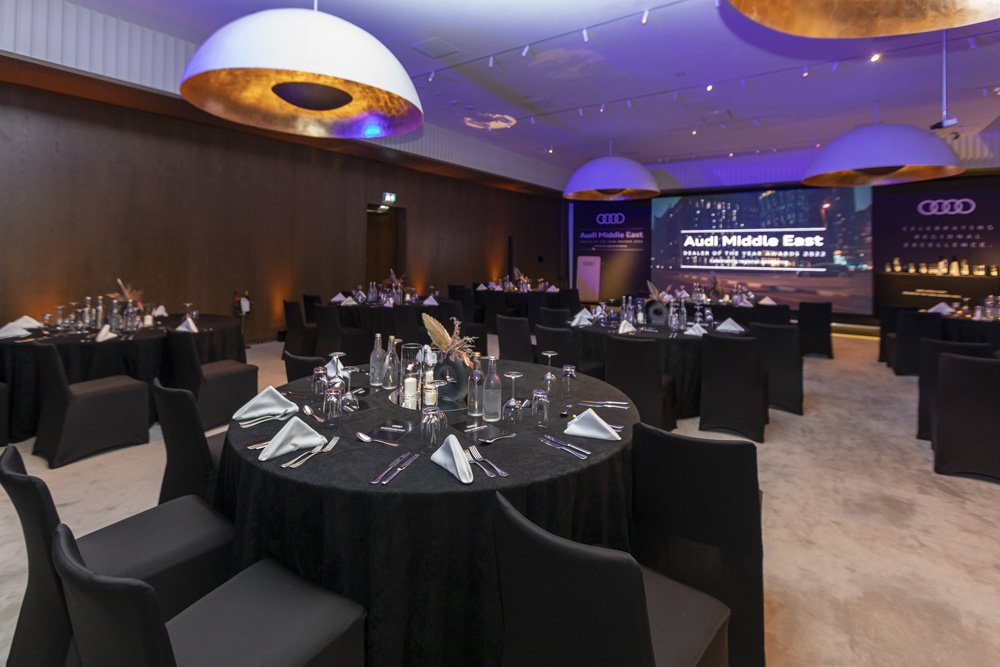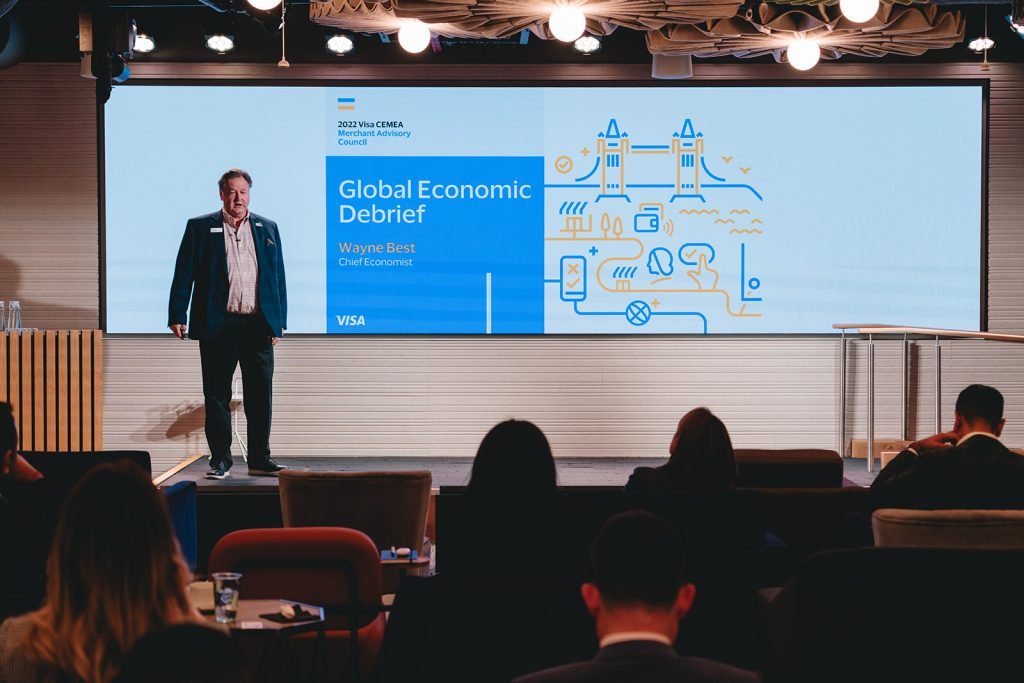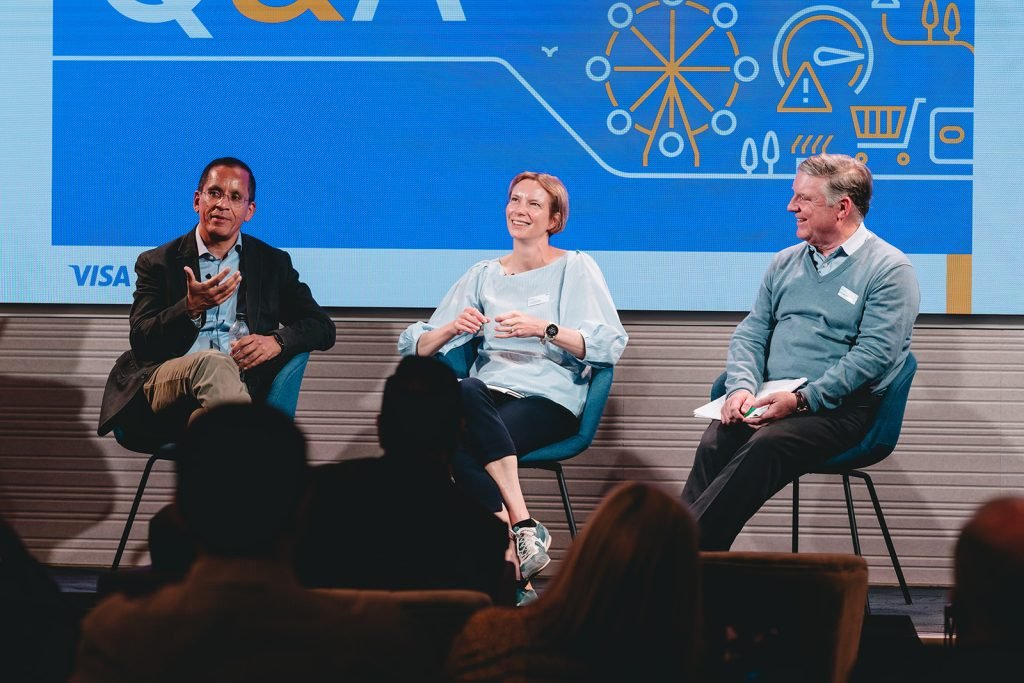
It’s wrap-up time for what seems to have been a successful corporate event. The venue was stunning, the speakers were engaging, and the feedback forms appear to be brimming with praise. But as the dust settles and the last attendee leaves, a nagging question lingers: Will any of this translate into long-term gains?
It’s all too easy to fall into the trap of viewing corporate events as one-off experiences. We pour our energy into creating a memorable day or two, but often overlook the long-term potential these gatherings hold. The result? A series of missed opportunities that can cost your business dearly in the long run.
The numbers speak for themselves. A study by Bain & Company revealed a mere 5% increase in customer retention rates can boost profits by 25% to 95%. It’s a staggering statistic that begs the question: Are we truly leveraging our corporate events to nurture and strengthen valuable relationships?
Failing to build lasting connections through your events can have severe consequences:
- Potential customers slipping away, taking their business with them
- Declining customer loyalty and rising churn rates
- Missed referrals and word-of-mouth marketing opportunities
- Struggling to stand out in a crowded market
- Resources wasted on events that deliver fleeting excitement but little enduring value
But there’s a flip side to this. When approached with intention and strategy, corporate events can become powerful catalysts for relationships that drive business growth for years to come.
This article explores the nuanced art of relationship building through corporate events. Whether you’re an event planner aiming to add more value to your services or a business leader looking to maximise event ROI, this guide is for you.

Nurturing client relationships through corporate events
Corporate events offer a unique opportunity to nurture customer relationships in a way that emails, phone calls, and routine meetings simply can’t match. Face-to-face interactions in a carefully curated environment can build stronger connections and deepen understanding between your business and your customers. The key to leveraging these events for stronger customer relationships lies in creating meaningful, personalised experiences that have lasting impact.
Here are some strategies to consider, along with why they’re effective:
- Personalise the Experience: Use pre-event surveys or CRM data to tailor aspects of the event to individual customer needs. This could mean personalised agendas or customised welcome packages. Personalisation shows customers that you value them as individuals, not just as business entities. It demonstrates that you’ve taken the time to understand their specific needs and interests, laying the groundwork for deeper, more meaningful relationships.
- Create Structured Networking Opportunities: Facilitate introductions between customers with complementary interests or challenges. Consider using a ‘matchmaking’ system to ensure valuable connections aren’t left to chance. By actively helping customers make beneficial connections, you position your company as a valuable partner invested in their success beyond just your specific service offerings.
- Showcase Your Expertise Interactively: Host workshops or problem-solving sessions that address specific customer pain points. This approach allows you to demonstrate your expertise in a practical, customer-focused way. It shows you understand their challenges and have the capability to address them, reinforcing your value as a long-term partner.
- Balance Formal and Informal Interactions: Include both structured business sessions and more relaxed networking opportunities. This allows for different types of relationship-building. Formal sessions build professional respect, while informal interactions encourage personal connections that can strengthen business relationships.
By focusing on these strategies during your events, you create an environment conducive to relationship building. However, remember the event itself is just the beginning. The real test of relationship nurturing comes in the follow-up and long-term engagement, which we’ll explore in the next sections.
The art of follow-up: post-event relationship building strategies
While the event itself lays the foundation for strong customer relationships, it’s the follow-up that cements them. A well-executed follow-up strategy can transform a positive event experience into a long-lasting, mutually beneficial business relationship. Here’s how to master the art of post-event follow-up:
- Timely Outreach: Reach out within 48 hours of the event’s conclusion. This could be a personalised email, a phone call, or even a handwritten note for key customers. Quick follow-up shows you value the connection made at the event and are eager to continue the conversation. It keeps the momentum going while the event is still fresh in everyone’s mind.
- Personalised Content: Reference specific conversations or interactions from the event in your follow-up. This could be a point raised during a session, a shared interest discovered during networking, or a business challenge discussed. This style of personalisation demonstrates active listening and genuine interest, making the customer feel valued and understood.
- Provide Additional Value: Share relevant resources, insights, or introductions based on discussions at the event. This could be an article addressing a challenge they mentioned, or an introduction to another attendee who could be a valuable contact. By continuing to provide value after the event, you position yourself as an ongoing resource and partner, not just an event host.
- Create a Follow-Up Plan: Develop a structured plan for ongoing engagement. This might include scheduled check-ins, invitations to smaller events, or sharing of relevant company updates. A structured approach ensures the relationship continues to develop over time, rather than fizzling out after the initial post-event contact.
- Leverage Social Media: Connect with attendees on professional social networks. Share event highlights, continue discussions started at the event, and engage with content shared by attendees. Social media provides a platform for ongoing, informal engagement that can complement more formal business interactions.
- Gather and Act on Feedback: Send out a post-event survey, but don’t stop there. Reach out personally to discuss feedback, especially if someone raised a concern or had a particularly positive experience. This shows you value their opinion and are committed to continuous improvement. It also opens the door for further conversation and relationship building.
Effective follow-up is not about immediate sales pitches. It’s about nurturing the connection made at the event and demonstrating long-term value. Resist the temptation to immediately push for a sale or commitment. Instead, focus on building trust and providing value. This value-first approach may seem counterintuitive in a results-driven business environment, but patience is the key to building lasting relationships. By prioritising the customer’s needs and focusing on how you can genuinely help them, you create a foundation of trust, which in turn often leads to more substantial, long-term business opportunities.
Consider each follow-up interaction as an investment in the relationship, not a transaction. Share insights, offer assistance, or simply check in without any agenda. Over time, this can lead to stronger loyalty, increased referrals, and, yes, more business - but as a natural outcome of a valued relationship, not a forced sales pitch. By mastering these follow-up strategies and embracing a long-term, value-focused approach, you can turn the positive energy of your event into enduring, profitable customer relationships.

Inclusive practices for relationship building at conferences
Ensuring that all attendees have equal opportunities to form meaningful connections can significantly enhance the overall value of your event and lead to a wider network of strong, lasting relationships. Here are 10 ways to make your conference more inclusive:
- Diverse speaker line-up: Ensure your speakers represent a variety of backgrounds, experiences, and perspectives. This not only provides diverse insights but also helps different attendees feel represented and engaged.
- Accessibility considerations: Make sure your venue and activities are accessible to all. This includes physical accessibility for those with mobility challenges, as well as considerations for visual or auditory impairments. Provide materials in multiple formats and consider offering sign language interpreters for major sessions.
- Varied networking formats: Not everyone thrives in large, noisy networking sessions. Offer a mix of networking opportunities - large group sessions, small group discussions, one-on-one matching, and even quiet spaces for more introverted attendees to connect.
- Cultural sensitivity: If your conference attracts an international audience, be mindful of different cultural norms in business interactions. Consider providing cultural etiquette tips in your event materials and train your staff to be culturally aware.
- Language support: For international conferences, consider offering translation services or session tracks in multiple languages. This ensures language barriers don’t stand in the way of forming valuable connections.
- Inclusive catering: Ensure your catering options accommodate various dietary requirements, including religious restrictions, allergies, and lifestyle choices. Food can be a great conversation starter, but only if everyone can participate.
- Mentorship programmes: Implement a conference mentorship programme that pairs seasoned attendees with first-timers or junior professionals. This can help newcomers navigate the event more effectively and form meaningful relationships.
- Digital inclusion: While face-to-face interactions are valuable, don’t neglect digital channels. Use event apps or online platforms that allow attendees to connect and schedule meetings. This can be particularly helpful for those who find impromptu in-person networking challenging.
- Feedback mechanisms: Provide multiple channels for attendees to give feedback during and after the event. This could include anonymous suggestion boxes, digital surveys, or dedicated feedback sessions. Act on this feedback to continually improve your inclusive practices.
- Staff Training: Ensure your event staff are trained in inclusive practices and are prepared to assist all attendees in making connections and fully participating in the event.
By putting these tips into practice you create an environment where all attendees feel valued and have equal opportunities to build relationships. This not only enhances the experience for delegates but also enriches the overall networking ecosystem of your event. Inclusivity goes beyond ticking boxes – it creates a culture of openness, respect, and equal opportunity. When people feel they can fully participate and form meaningful connections, your event becomes a powerful catalyst for diverse, lasting relationships that drive real growth and exciting innovation.
Leveraging feedback to strengthen future customer relationships
Feedback is more than just a post-event formality or a tool for tweaking logistical details. When approached strategically, it becomes a powerful way to deepen customer relationships and drive long-term business growth. The key lies in viewing feedback not as a one-way flow of information but as the beginning of an ongoing dialogue with your customers.
Consider feedback as a window into your customers’ world. It offers invaluable insights into their challenges, aspirations, and perceptions - insights that go far beyond the scope of a single event. By truly listening and responding to this feedback, you demonstrate that you view your customers not just as attendees, but as partners in a shared journey.
This perspective shift transforms how you approach feedback:
- From reactive to proactive: Instead of simply reacting to comments, you begin to anticipate needs and proactively address them. This forward-thinking approach positions you as a strategic partner rather than just a service provider.
- From event-focused to relationship-focused: While improving future events is important, the real value lies in using feedback to enhance the overall customer relationship. Every piece of input becomes an opportunity to align more closely with your customers’ evolving needs.
- From short-term fixes to long-term strategy: Rather than making superficial changes, use feedback to inform your long-term customer engagement strategy. This could mean reshaping your service offerings, adjusting your communication approach, or even rethinking your business model.
- From generic to personalised: Move beyond one-size-fits-all solutions. Use feedback to create tailored experiences and solutions that resonate on a personal level with each customer.
- From closure to continuation: Instead of viewing feedback as the end of the event process, see it as the beginning of the next phase in your customer relationship. It’s an opening for continued engagement and collaborative growth.
By taking a strategic approach to feedback, you create a virtuous cycle of continuous improvement and deepening relationships. Customers feel heard and valued, leading to increased trust and loyalty. This, in turn, encourages more open and constructive feedback, fuelling further improvements and strengthening the partnership.
Feedback is not just information - it’s currency. Every piece of input is an investment your customers make in your shared future. By treating it as such, you not only improve your events, you make your customer relationships more meaningful.
Building lasting relationships through events requires a commitment to continuous improvement, and the ability to create meaningful, personalised experiences. But the rewards – increased customer loyalty, improved retention rates, and sustainable business growth – make it a worthy investment.
So, whether you’re planning your next big conference or following up after an intimate workshop, keep these principles in mind. Listen actively, respond thoughtfully, and always strive to add value. The payoff will speak for itself.
At Noble Events, we understand that building lasting relationships through events requires expertise, dedication, and a deep understanding of our clients’ needs. We pride ourselves on going beyond just event planning. We create experiences that encourage meaningful connections and drive long-term business growth. Ready to transform your corporate events into powerful catalysts for lasting relationships? Start a conversation with us today.
Let’s Create Your Next Unforgettable Event
From high-stakes automotive launches and VIP conferences to ultra-luxury incentives and seamless media management, Noble Events delivers exceptional experiences that elevate your brand. With over three decades of industry expertise, we cover every detail to ensure flawless execution, no matter the scale. Explore Our Work or learn more about our services: Automotive Events, Delegate Management, UHNW Experiences, Incentive Schemes, and Media Events. Ready to make an impact? Start a conversation and discover how we can turn your vision into reality.
